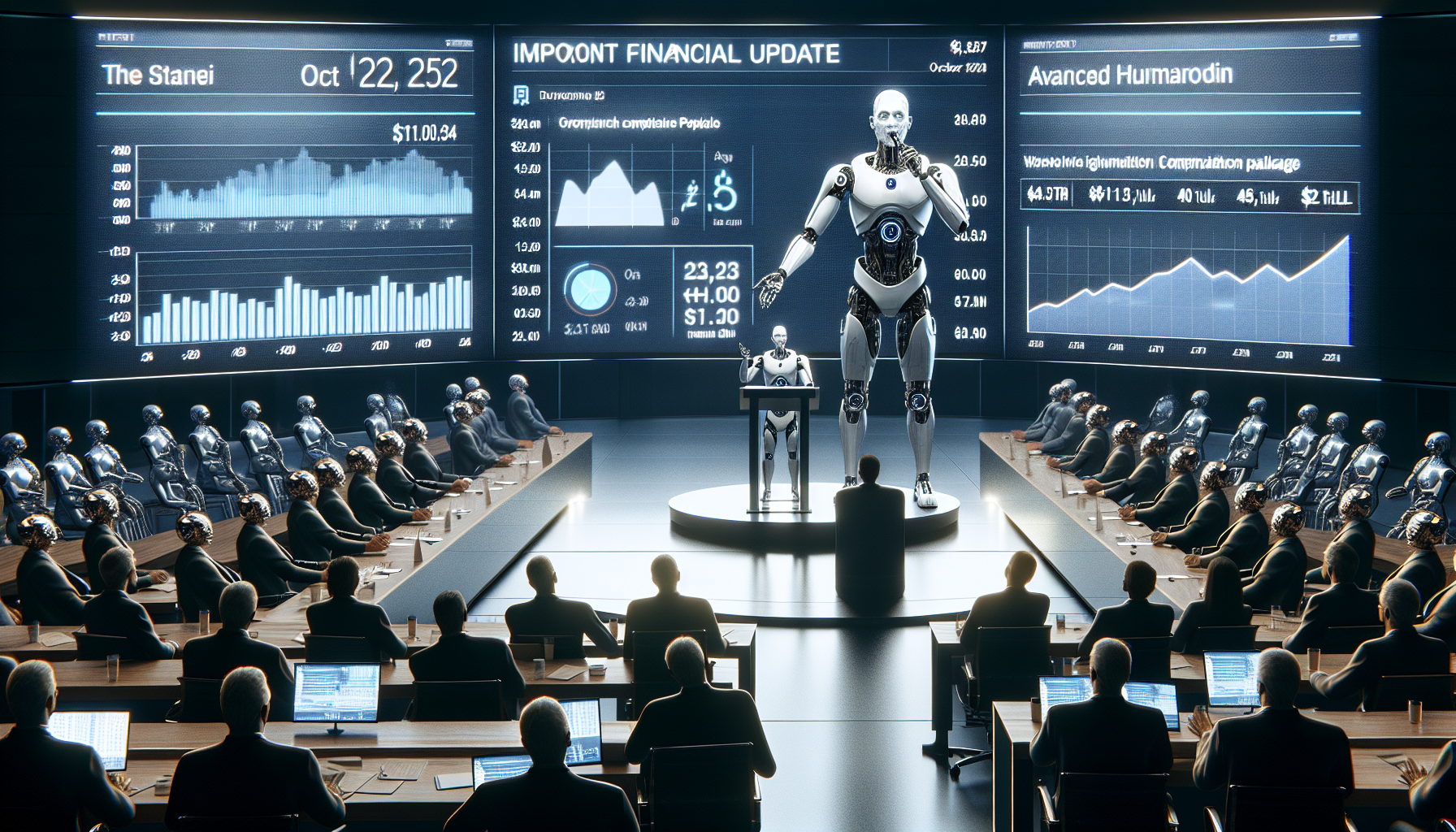During Tesla's third-quarter earnings call on October 22, 2025, CEO Elon Musk emphasized the need for a proposed $1 trillion compensation package to ensure strong influence over the company's developing humanoid robots, dubbed a 'robot army.' He framed the package not as personal gain but as protection against potential ousting that could undermine his control. Shareholders will vote on the plan in early November amid financial results showing revenue growth but declining profits.
Tesla's Q3 2025 earnings call highlighted both financial performance and CEO Elon Musk's vision for the company's future in AI and robotics. The company reported total revenue of approximately $28 billion, up 12% year-over-year, with automotive revenues at $21 billion from 497,099 vehicle deliveries. However, operating income fell 40% to $1.6 billion, and net income dropped 37% to $1.3 billion, attributed to higher operating expenses, tariffs costing $400 million, and increased R&D spending on AI and robotics.
Musk's comments centered on a board-proposed compensation package from September 2025, potentially worth nearly $1 trillion in stock options over 10 years. The plan would grant Musk options for over 423 million additional shares if Tesla achieves milestones including 20 million vehicle deliveries, 1 million robotaxis in operation, 1 million Optimus humanoid robots delivered, and an $8.5 trillion valuation. This would raise his ownership from about 13% to 25%, providing what he called 'strong influence' rather than outright control.
'My fundamental concern with regard to how much voting control I have at Tesla is, if I go ahead and build this enormous robot army, can I just be ousted at some point in the future?' Musk said. 'It’s not like I’m going to go spend the money... I don’t feel comfortable wielding that robot army if I don’t have at least a strong influence.' He criticized proxy advisory firms ISS and Glass Lewis as 'corporate terrorists' for recommending votes against the package, claiming their advice could lead to his removal and harm Tesla's AI direction.
The package faces opposition from unions and governance groups via the 'Take Back Tesla' campaign, echoing scrutiny of Musk's prior $56 billion package, approved in 2018 and 2024 but struck down by a Delaware court. Tesla's board argues the incentives are essential to retain Musk amid his roles at SpaceX and xAI. Musk described Optimus as an 'infinite money glitch,' predicting it could eliminate poverty and enable advanced medical care, with a production-intent prototype slated for early 2026 and scaled production by year's end.
CFO Vaibhav Taneja supported the plan, stating the special committee 'did an amazing job' for shareholders. The non-binding vote is set for Tesla's annual meeting on November 6, 2025.

